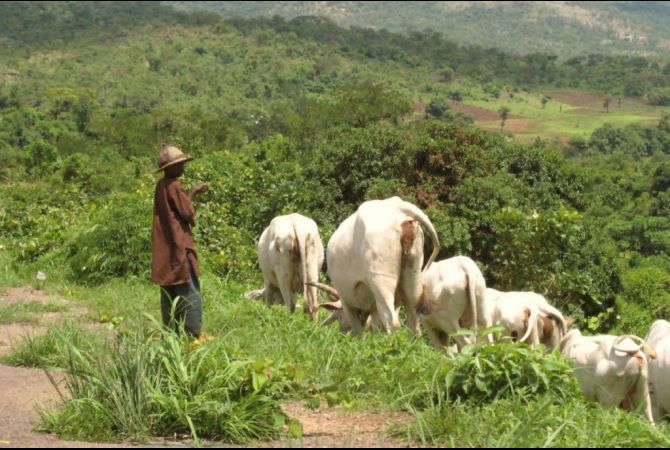The Deputy Governor of Taraba, Alhaji Haruna Manu, on Monday, January 22, 2018 said the state government would implement the anti open grazing law gradually.

Manu disclosed this in media briefing shortly after a closed door meeting with traditional rulers in the state.
He said there would be aggressive awareness campaigns across the state before the implementation of the law, scheduled to take effect as from Jan. 24, 2018.
He added that traditional rulers in the state had accepted ranching as best option to feed and take care of animals, noting, however, that implementation would be in phases.
The deputy governor said “our anti open grazing law which is slated to take off on Jan. 24 would be implemented gradually.
“The Taraba Government would establish pilot ranches in the three zones of the state and carry out aggressive awareness campaigns in the state, local government and ward levels.”
He urged the people of the state not to politicise the law, saying it was meant to enhance peaceful coexistence between herdsmen and farmers.
Similarly, a civil society organisation (CSO), Search for Common Ground, on Monday in Abuja urged the Benue State Government to review its Open Grazing law to end perceived discrimination against individuals or groups in the state.
Dr Chris Kwaja, Research Fellow of the organisation, made the call after its investigations into the “Implication of Open Grazing Prohibition Laws’’ between farmers/herdsmen in the Middle Belt region of the country.
The News Agency of Nigeria (NAN) reports that report of the investigations was made available to newsmen.
The report said that while legislation could be useful in addressing drivers of conflicts, it should not be used as a panacea.
It added that while the law was enacted in response to incessant conflicts between farmers and herdsmen, its effectiveness to manage the conflict was yet to be determined.
“There is a clear distinction between the procedure and mechanism for land acquisition with respect to citizen’s of Nigeria who are not indigenes of Benue on one hand and the indigenes of the state.
“There is the need for the Benue government to review this procedure and mechanism procedures for land acquisition to remove clauses that are discriminatory.
“The law and its implementation deepened division between farmers and herdsmen in the state so the government needs to counter the narrative that the law is to evict herdsmen.
“The government also needs to facilitate a platform to address the concerns of herdsmen and lastly ensure farmers, herdsmen and relevant experts jointly develop inclusive and gradual implementation plan for the law.’’
The report said that the multi-stakeholder engagements should also be a platform for the parties to highlight aspects of the law that could be interpreted as discriminatory and recommend possible amendments of such aspects.
The report also urged Benue government to look beyond the “binary do or do not open grazing options’’ to identify alternatives with incentives that would attract herdsmen to gradually embrace ranching in line with the law.
It further advised the government to engage investors to invest in industrial ranching and develop incentives to stimulate ordinary herdsmen to establish subsistence and community –based ranches in the short, medium and long term.
This, it said would aid in curbing the diverse implications of the law across economic, cultural, security and religious dimensions.
It said that the situation in Benue had presented a unique opportunity for state governments to be conflict sensitive in the development and implementation of legislation that addresses the farmer-herdsmen conflict in Nigeria.
By Angela Atabo and By Gabriel Yough
